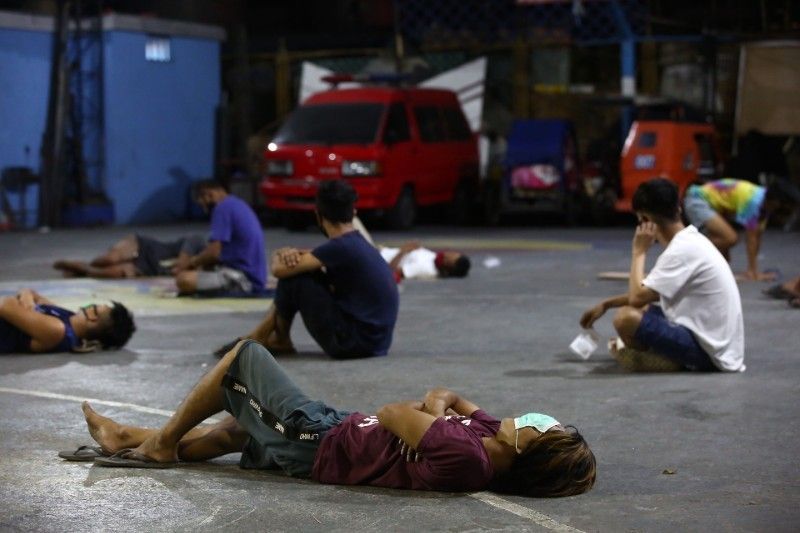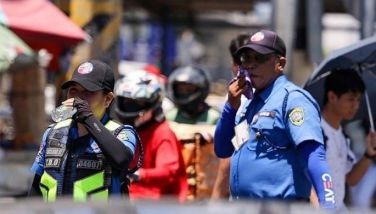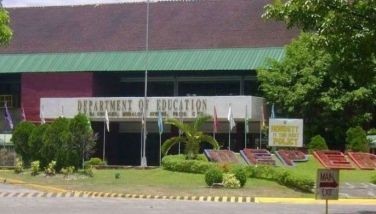Gov't repression of rights a common ASEAN trend amid pandemic — think tank

MANILA, Philippines — Ranking members of the ASEAN human rights community have cast fear over what they said was a growing trend of governments in the region resorting to the repression of fundamental human rights.
In an online press conference organized by the ASEAN Studies Program of Jakarta-based international think tank The Habibie Center, representatives from the ASEAN Intergovernmental Commission on Human Rights (AICHR) along with the Asian Forum for Human Rights and Development (FORUM-ASIA) sounded the alarm over what they tagged as a rising authoritarianism evident across ASEAN member states.
READ: Public urged to document attacks, abuses during Luzon lockdown
According to Indonesian rights activist and AICHR Rep. Yuyun Wahyuningrum, the commission generally observed over the past month that the broader subject of human rights is hardly mentioned in most government resolutions across the ASEAN region.
Rachel Arinii Judhistari, FORUM-ASIA East Asia and ASEAN manager said this mirrorred the forum's own documentation which instead showed that "government responses have chosen to become more authoritative and repressive."
"Rather than adopt a human rights approach, they have chosen to adopt repressive strategies," she said, citing instances of human rights abuse at the hands of military men in Cambodia, the Philippines and Thailand.
NOW: Talking ASEAN Webinar on "Protecting Fundamental Human Rights in ASEAN amidst the COVID-19 Pandemic" organized by the ASEAN Studies Program of Jakarta-based think tank The Habibie Center. | via @FrancoOvrboard pic.twitter.com/FaPy8wwFH6
— Philstar.com (@PhilstarNews) April 22, 2020
Among many other examples in the region, she specifically pointed out President Rodrigo Duterte's public pronouncements ordering military and police personnel to shoot dead any protesters violating procedures under the enhanced community quarantine—a statement Wahyuningrum said the AICHR took notice of.
"Shoot them dead," the president said at an address that was livestreamed across the nation.
RELATED: PNP: We'll go 'straight to arrests' in 'martial law-type' quarantine
His staunch supporters claim this notion should not have been taken seriously as he was only referring to left-leaning critics of the government, though international rights organizations such as Amnesty International and Human Rights Watch also cast fear over its possible effects.
'No solutions for people'
In the Philippines, rights and healthcare advocates say the Duterte administration's foolhardy rhetoric of a nationwide "war" raging against the novel coronavirus intentionally perpetuates a misplaced militarism in a time when medical solutions are necessary.
Judhistari said that this lack of comprehensive responses was observed throughout Southeast Asian nations, which in turn resulted in more criticism of Southeast Asian governments, and consequently, widespread unrest.
"Most of the countries are issuing emergency decrees and not providing solutions for people living in poverty, and this increases social unrest," she said.
READ: 'War' narrative in COVID-19 crisis fails to empower Filipinos, groups say
In her presentation, the FORUM-ASIA member also cited the arrests of 21 Quezon City protesters who were arrested for demanding food and financial aid in the absence of government support, and were made to post bail later on.
Judhistari: In the Philippines, the residents of San Roque in Quezon City including women and children went to the streets to demand food assistance. Instead of heeding their demands, 21 of them were arrested. | via @FrancoOvrboard
— Philstar.com (@PhilstarNews) April 22, 2020
Although affirming the need for manpower and movement limitations in times of health crisis, Wahyuningrum pointed to ASEAN human rights guidelines for such restrictions, saying, "Any limitation should meet the requirements of legality, legitimacy, necessity and proportionality."
These should also be temporary and be issued solely to address matters of public concern and public health, she said.
RELATED: 20 arrested at protest in Quezon City during quarantine
"In a time when the entire world has stopped, the struggle of the marginalized does not, and social distancing could very well be the last problem of someone with an empty stomach," urban poor alliance Save San Roque said of the arrests.
Government has released financial aid although agencies have admitted that there have been logistical challenges to identifying beneficiaries for subsidies. Local government units have also had varying levels of success in distributing food packs to residents affected by the weeks-long stoppage of "non-essential" work.
But in spite of these well-documented gaps in social safety nets for the country's most vulnerable sectors, elected public officials have been steadily ramping up the narrative that the dire COVID-19 situation is largely due to Filipinos being "pasaway" and stubbornly ignoring quarantine guidelines.
Foundation of people's rights sought
Judhistari said the crisis was not only a public health crisis but a human rights one, with governments generally responding to it in an untimely fashion.
"Some of the trends that we've documented are lack of transparency and restriction to information, while abuse of power by military and police has been documented in Cambodia, the Philippines and Thailand," she said.
"We also see the use of torture and cruel, inhuman or degrading treatment, which has been pronounced in the Philippines," she added.
RELATED: QC cop who killed ex-soldier 'followed instruction' — PNP chief
As a result, she said, there are 30,000 cases in ASEAN and over 1,000 deaths, but experts say that the figures are projected to increase as these are largely under reported and underestimated.
Throughout each ASEAN nation's struggle against the new pathogen, Wahyuningrum said the AICHR generally observed an impact on certain human rights, including the fundamental rights to movement, peaceful assembly, work, education and information.
"Xenophobia continues to happen, while there [is] persecution against those who violate quarantine and criticize government action [as] critics of government policy were arrested by government, along with those who shared misinformation," she said.
Judhistari bares FORUM-ASIA's recommendations for the ASEAN community to alleviate the human rights impact of the COVID-19 pandemic @PhilstarNews pic.twitter.com/gLjoUajk48
— Franco Luna (@FrancoOvrboard) April 22, 2020
Wahyuningrum recommended that "ASEAN governments need to be transparent about situations to be able to come up with collective action and cooperation. Stigma and discrimination has to be addressed politically."
RELATED: 'Critical but not seditious,' journalist, artists say of papers in halted Bulacan relief drive
In discussing best practices across the region, Judhistari pointed to South Korea's transparency of information, mass testing, their government's information campaign against discrimination and xenophobia and Taiwan's voluntary early screening and intensive health monitoring, which "armed its people with knowledge" to reduce fear.
Both rights advocates also agreed that marginalized groups must be given extra attention as their different vulnerabilities would likely intersect in the middle of a public health emergency.
The country's own Commission on Human Rights has ramped up calls for the same sectors to be heard.
RELATED: Women with Disabilities Day passes with women, PWDs still facing hurdles in access and mobility
“The vulnerabilities faced by these groups need to be considered in every government decision, and they need to be given proper information as they are the most at risk from infectious disease,” CHR said in Filipino in an earlier statement.
LOOK: The Commission on Human Rights issues a series of infographics outlining why the plight of vulnerable sectors should be considered in informing risk communication and community engagement initiatives in the time of COVID-19. | via @FrancoOvrboard@chrgovph pic.twitter.com/6xlGxZ1VuK
— Philstar.com (@PhilstarNews) April 5, 2020
"We'd like for ASEAN member states to start thinking about the aftermath of COVID-19 as its impact on marginalized and vulnerable groups is devastating," Judhistari said.
- Latest
- Trending



































